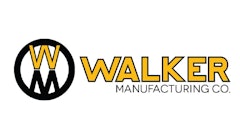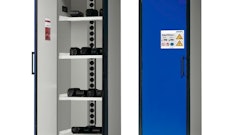In today’s highly competitive business climate, most successful companies are finding new and creative ways to win business. By building customer-centric business plans and increasing their commitment to company-wide execution, they’ve managed to succeed in a turbulent economy.
Most of all, they’ve discovered they simply cannot afford to make mistakes in their customer relationships. They strive to outdo the competition in every aspect of their business that touches the customer. From equipment sales to service, successful dealers understand that the key to creating loyal customers is building a culture of accountability.
Organizations that foster accountability run like well-oiled machines, as people and processes work together to achieve more predictable and profitable results. Organizational accountability is not about catching employees doing something wrong, but rather high levels of employee satisfaction and enabling staff with the right resources and support from management.
The three keys to creating a culture of customer accountability are exceptional leaders, process discipline and workforce engagement.
Setting a direction through leadership
Establishing a customer-accountable culture starts with developing exceptional leaders. They are the navigation system that guides employees toward the finish line. These leaders have a foundation of management expertise that can maximize the talents of their teams as they keep them focused on their customers.
There are six job functions that are critical for exceptional leaders: communicating, planning, organizing, controlling, staffing and leading. Leaders who are effective at these functions consistently elevate the performance of their people.
Transforming leaders from average to exceptional requires that they get beyond their perceptions of their abilities. Managers must understand the impact they have on others. Understanding the perspective of others is a significant catalyst for getting managers committed to improving their skills, attitudes and beliefs.
Holding employees accountable
In years past, many companies have been able to succeed because of great products. When markets get tough, though, accomplishing the same results requires more. Process discipline drives accountability and ensures success, even in a turbulent economy.
Leaders who hold their teams accountable for exceeding customer expectations establish a systematic approach to monitoring progress and taking corrective action. This typically involves a regular, top-down examination of goals and tasks, enabled by a plan for overcoming obstacles to success.
But a consistent methodology is not enough if there is not a clear understanding of the importance of customers to accomplishing key business drivers. Identifying and planning to execute on these “vital few” is the key to energizing employee commitment to individual, departmental and corporate goals.
Employees must believe they make it happen
Leaders who support employee development and clearly communicate goals enable workforce engagement. For many organizations it’s the engine that drives accountability. When an individual feels leadership is aligned with their efforts to serve customers, he or she tends to maintain his or her customer needs focus. An engaged employee views each customer experience as a “moment of truth”—an opportunity to deliver value and create another loyal customer.
Ultimately, workforce engagement enables commitment to excellence. When individuals understand how their dedication plays into the organization’s broader goals, they see themselves as part of a team. They work to better themselves in order to ensure the whole team wins. What’s most interesting is how an environment of engaged employees can thrive, not only because it’s a great place to work but also because it creates a vibrant, productive culture that delivers predictable and profitable results.
Customer-accountable cultures with exceptional leaders, process discipline and an engaged workforce have the unique ability to establish a competitive advantage. Companies with an uncompromising commitment to leadership, process and people are committed to their customers. Accountability makes customer loyalty possible.
About the Author
Walt Zeglinski is CEO and chief client advocate for Management Action Programs (MAP), a performance-improvement firm that helps organizations achieve profitable growth. MAP’s performance and process solutions establish the disciplines that create a culture of accountability. For more information, visit mapconsulting.com or call (888) 834-3040.



























